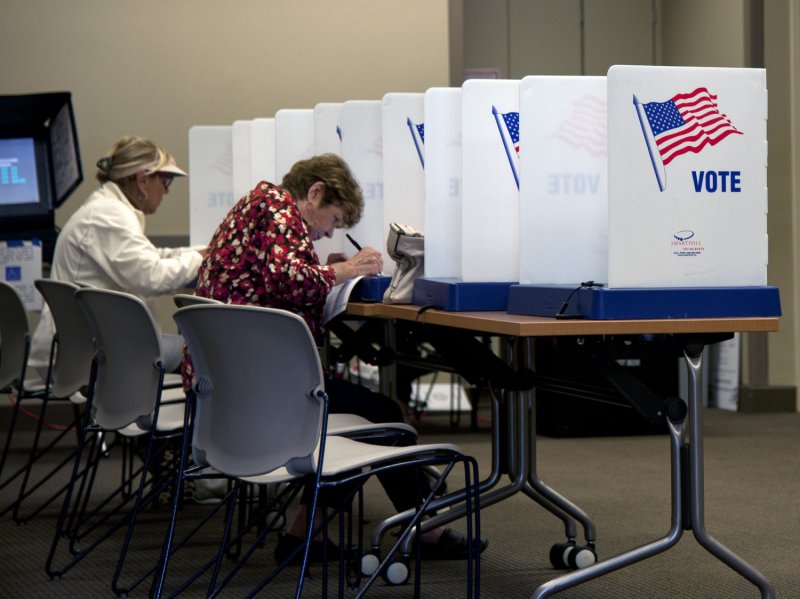WASHINGTON, June 17 (UPI) -- The U.S. Supreme Court ruled 7-2 Monday Arizona's requirement of proof of citizenship before voter registration is pre-empted by federal law.
If it translates to other challenges in other states, the ruling is a major blow to voter ID efforts. Seventeen states have enacted laws requiring the presentation of some type of government-issued photo identification, such as a driver's license, before voting. The Brennan Center for Justice said those 17 states account for 218 of the 270 electoral votes needed to win the presidency.
Republicans who have sponsored such laws say they are necessary to prevent widespread voter fraud. Democrats say Republicans have presented no evidence of widespread fraud, and the laws are only a thinly veiled campaign to suppress the votes of minorities, the elderly and the poor.
In an unusual coalition at the Supreme Court, conservative Justice Antonin Scalia wrote the majority opinion, and was joined by Chief Justice Roberts and the court's four liberals. Justice Anthony Kennedy wrote a separate opinion dissenting and joining in part, but concurring in the judgment.
The Arizona case pits the state requirement for proof of U.S. citizenship against the federal "Motor Voter" law that requires only filling out a form to register for federal elections.
The case, Arizona vs. The Inter Tribal Council of Arizona Inc., first reached the U.S. Supreme Court in 2006's Purcell vs. Gonzalez. Though the justices did not reach a resolution, they sent the case back down to the lower courts.
A federal judge refused to issue an injunction against the implementation of the law in the case brought by a coalition of Hispanic, Indian and civil rights groups. However, a federal appellate panel, and then the entire 9th U.S. Circuit Court of Appeals in San Francisco reversed, saying the law violated Article I of the U.S. Constitution and the National Voter Registration Act, known as the "Motor Voter Act," which requires states to make it easier to register for federal elections. The act allows information gathered from license renewals, among other things, to be used for voter registration.
Article I, the election clause, says in part, the "times, places and manner of holding elections for senators and representatives, shall be prescribed in each state by the legislature thereof; but the Congress may at any time by law make or alter such regulations, except as to the places of choosing senators."
Arizona then successfully asked the U.S. Supreme Court for review.
In affirming the lower courts, Scalia said: "The National Voter Registration Act requires States to 'accept and use' a uniform federal form to register voters for federal elections. The ... federal form ... does not require documentary evidence of citizenship; rather, it requires only that an applicant aver, under penalty of perjury, that he is a citizen. Arizona law requires voter-registration officials to 'reject' any application for registration, including a federal form, ... not accompanied by concrete evidence of citizenship. The question is whether Arizona's evidence-of-citizenship requirement, as applied to federal form applicants, is pre-empted by the act's mandate that states accept and use' the federal form."
He added: "We conclude that the fairest reading of the statute is that a state-imposed requirement of evidence of citizenship not required by the federal form is 'inconsistent with" the NVRA's mandate that states "accept and use" the federal form. ... If this reading prevails, the [Constitution's] elections clause requires that Arizona's rule give way."















